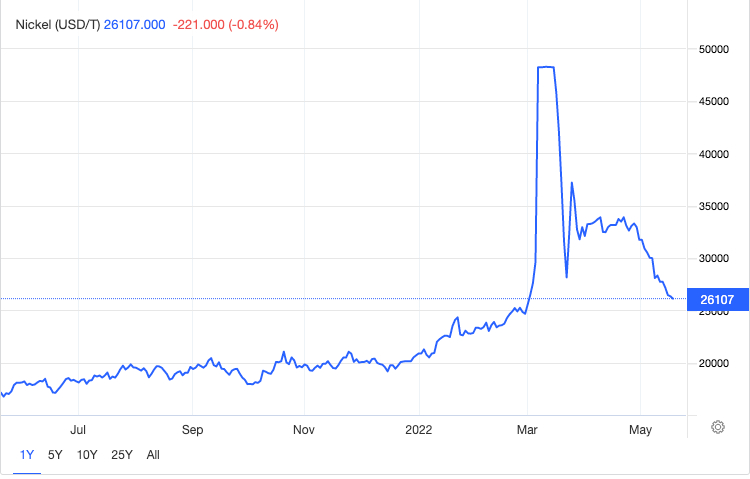Nickel has been a buoyant sector over the last few months due to geopolitical tensions in Russia-Ukraine and the growing adoption of electric vehicles.
Experts have noted an increase in consumers opting for EVs over traditional combustion engine vehicles – around 10 million EVs hit the road in 2020, a 43% increase from 2019.
Sitting at the heart of this shift is the lithium-ion battery, which contains high-quality grade nickel sulphate ore.
Batteries with cathodes containing greater nickel content have higher energy density and thus longer driving ranges, but unlike other battery materials such as cobalt and lithium, nickel is not primarily driven by global battery demand.
Around 70% of the world’s nickel production is consumed by the stainless-steel sector, while batteries make up a mere 12%.


